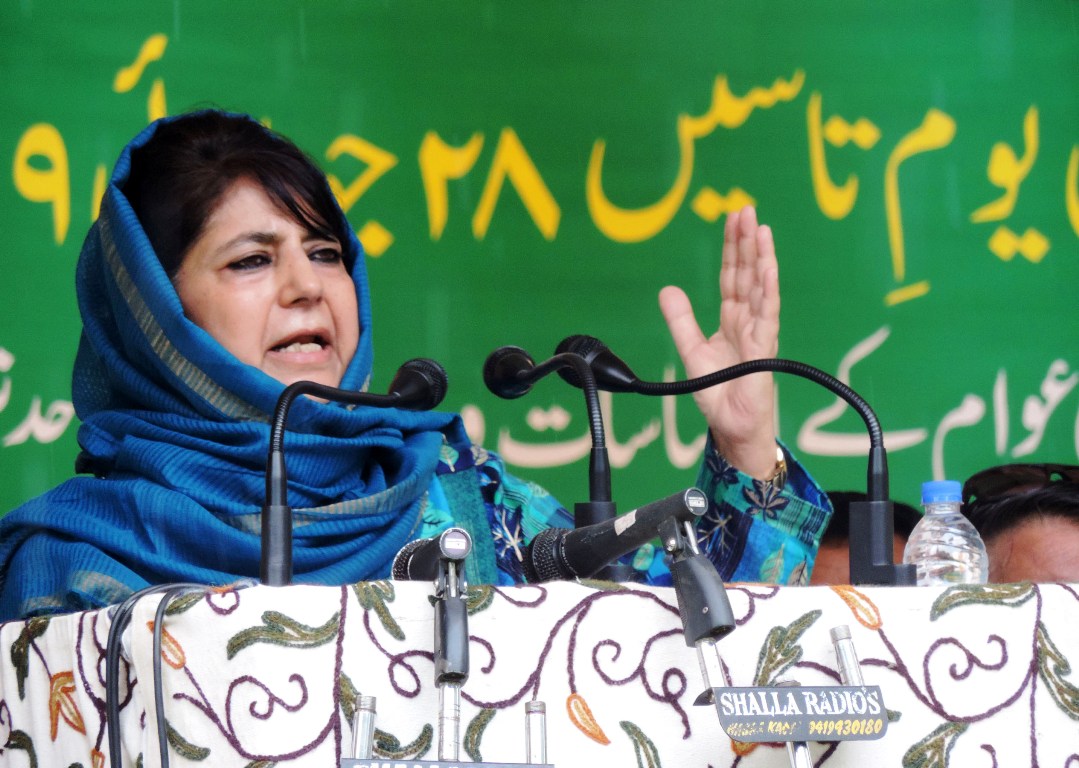SRINAGAR: The Jammu and Kashmir High Court stayed the appointment of Law Officers other than the Advocate General in a plea challenging the continued existence of the notification issued by the Department of Law, Justice and Parliamentary Affairs, inviting applications for engagement as Standing Counsel, reported LiveLaw.in.
According to report published by LiveLaw.in, a single-judge bench consisting of Justice Sanjeev Kumar ordered a writ as a Public Interest Litigation application suo moto, as it raised issues of seminal importance.
The petitioner challenged an advertisement issued in pursuance to the Jammu and Kashmir Law Officers to appoint law officers in the exercise of powers conferred by Section 124 of the Constitution of Jammu and Kashmir read with Section 492 of J&K Cr. P. C. The petitioner argues that after the promulgation of the J&K Reorganization Act, 2019, the Constitution of Jammu and Kashmir and State Criminal Procedure Code have been repealed and have ceased to be in existence, said the report.
The petition also challenges the eligibility criteria as given under the notification, allotting 02 marks for PG Diploma, 03 marks for Post Graduation and 05 marks for Ph. D. in Law for the required education qualification. The petitioner says that the said scheme is without any rationale and, therefore, per se arbitrary. The petition notes that allotting a weightage of 50 marks earmarked for Number of institutions in last two years of civil suits or defending civil suits is highly excessive without laying down any yardstick for assessment and allocation of 50 marks, it said.
The State argued that the Rules of 2016 are saved by the J&K Reorganization Act, 2019 and, therefore, can validly regulate the appointment and conditions of service of Law Officers in Jammu and Kashmir.
For the issue relating to the selection criteria, the state-respondent argued that the Government is well within its right to devise any selection criteria for selection and appointment of Law officers, and the same cannot be interfered with unless it is totally arbitrary, irrational and is found to have no nexus with the object sought to be achieved.
“Allocation of 50 marks, i.e., 02 marks for each institution of a civil suit or defending civil suit in last two years, it is submitted, cannot be termed as arbitrary or irrational because its definite object to be achieved is the selection of competent Law Officers to plead for or defend the Government in District Courts,” the State argued, according to LiveLaw.in.
It also argued that the mark distribution between LLB Qualification (10), relevant PG Diploma (02), Post Graduation in Law (03) and Ph.D. in law (05) is only in recognition with merit and gives a slight edge to the candidates possessing higher qualification and, therefore, the same too cannot be termed as arbitrary.
The Court held that the Rules of 2016 are deficient in complying with the statutory provisions of Section 24 of the Code of Civil Procedure, 1973 and not in conformity with the law laid down by the Supreme Court in the case of State Punjab & Anr. v. Brijeshwar Singh Chahal and Anr (2016) 6 SCC 1, where the SC held that the States should “reform their system of selection and appointment to make the same more transparent, fair and objective if necessary by amending the relevant LR Manuals/Rules and Regulations on the subject.”
The Brijeshwar Singh Chahal case also noted that the power to engage, employ and recruit must be exercised in a “fair, reasonable, non-discriminatory and objective manner,” An arbitrary action is offensive to Article 14 of the Constitution. As the appointment of a government counsel at both district and High Court levels is not just a professional engagement but has a ‘public element’ attached to it, the appointment must be only in the public interest, unaffected by any political or other extraneous considerations, the Court held.
The Court held that the Rules of 2016 framed by the then State of Jammu and Kashmir are deemed to be in operation in the Union Territory of Jammu and Kashmir to provide for eligibility requirements for the appointment of Law Officers, although not following the directives and the guidelines laid down by the Supreme Court in Brijeshwar Singh Chahal’s case.
The Court held that the petitioner in representative capacity had raised issues that have to be consulted by the High Court or not need determination by an authoritative pronouncement by a larger Bench.
‘The impugned selection criteria laid down in the advertisement notice itself though within the respondents’ discretion and, prima facie, not found bad yet would pose practical difficulties in its application. There are no specific guidelines for assessing a candidate’s working experience. Fifty points earmarked for institutions are capable of being misused in the absence of proper yardstick”, the Court observed, according to report.
On the issue of giving weightage to the number of institutions of a civil suit in the last two years, the Court held that it is not clear as to whether the filing of civil suit/proceedings must be by the candidate as an independent counsel or it could be in his capacity of a junior to a senior advocate. It observed that an advocate having independent practice might have fewer institutions than a candidate working with some noted senior advocate.
Similarly, the Court found the issue of allocation of 10 marks to qualification higher than LL.B as “apparently irrational and does not seem to have any nexus with the job.” The Court posed a question that when the Chief Justice of India and the Judges of Supreme Court and High Courts can be appointed with LLB qualification only, then why can’t a candidate with the same qualification be a competent Law Officer.
The Court held that this matter is important, and it should be imperative that these engagements are merit-based. “The quality of assistance rendered to the Court has a direct impact on the quality of justice delivered. It is, therefore, of essence that the advocates who represent State/UT in civil as well as criminal matters are of sterling quality. Poor assistance from either side, particularly from the Government side, which is the biggest litigant in courts, affects the administration of justice.”
The Court directed to treat the PIL suo moto and concluded that the policy of engagement of Government lawyers at all levels deserves a fresh look, and it is imperative that these engagements are merit-based and do not fall foul of Article 14 of the Constitution Of India.
The Court posted the matter before the Chief Justice for listing before the appropriate Bench and directed that till the matter is pending, no fresh appointment of Law Officers be made other than the Advocate General, reported LiveLaw.in.















